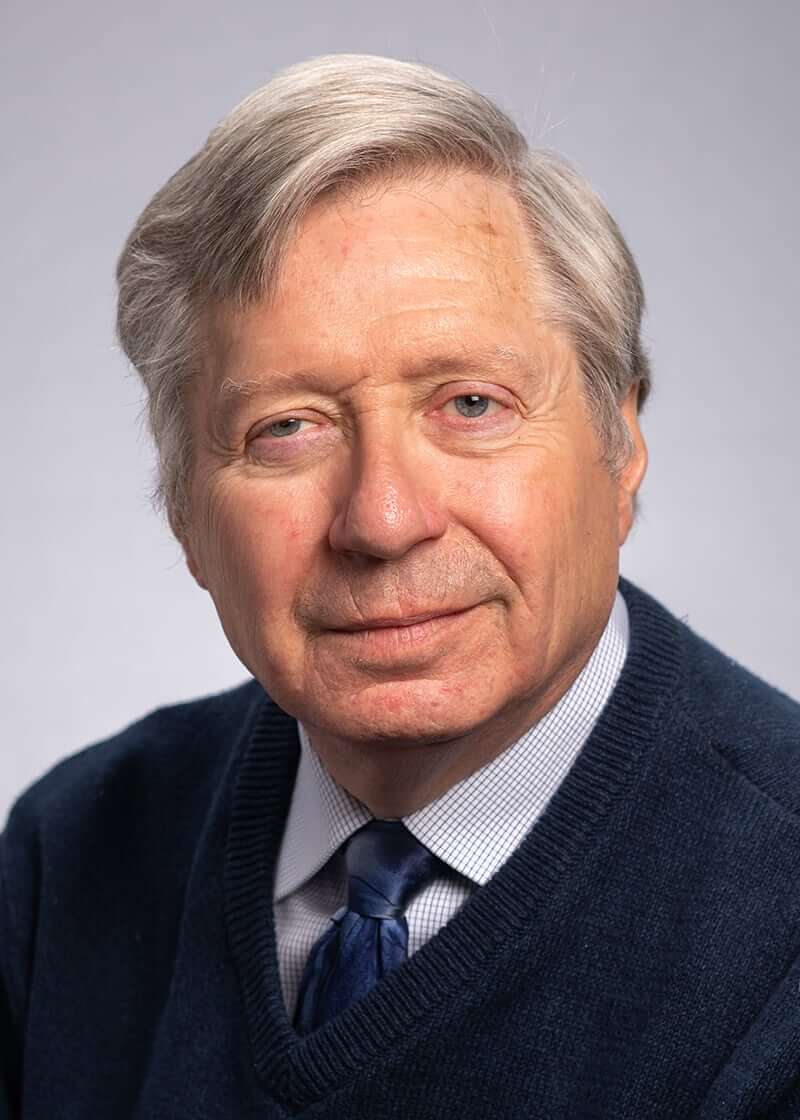Professor Emeritus
Research and Teaching Interests: Soviet, post-Soviet, and East European social history; center-periphery relations in the Soviet Union and its successor states; nationalism and national identity formation; processes of democratization; 20th century Ukrainian history
Education:
- B.A., Indiana University, 1975, History
- M.A., Harvard University, 1977, Soviet Studies
- Ph.D., Columbia University, 1986, History
Dr. George O. Liber was born in Australia, exactly one week after Joseph Stalin died. His family arrived in the U.S. in 1958. Liber has lived in Western Australia, Indiana, Massachusetts, New York, and Alabama, and has spent long periods of research in Washington, DC; Moscow, Russia; and Kyiv, Ukraine.
He enjoys reading novels (favorite authors are George Orwell, Milan Kundera, John le Carre, and Robert B. Parker), watching movies ("Rashomon," "The Battle of Algiers," "Citizen Kane," "Casablanca," "A River Runs Through It," and "Earth"), and consuming pizza at DaVinci's while mentoring his most successful students. Since 2010, Liber has been an international election observer for the Organization for Security and Cooperation in Europe (OSCE) and worked in Ukraine and Kazakhstan (its capital, Astana, has Star Trek architecture!). He enthusiastically recommends Nicolo Machiavelli's The Prince and John Nelson Bolles's What Color is My Parachute?: A Practical Manual for Job-Hunters and Career Changers to all students.
His Spring 2020 Semester in Europe (his sabbatical semester) was cut short by the COVID-19 pandemic when he was forced to leave Ukraine and return to the United States. He had won a small grant from the American Councils of International Education (ACIE) to work on a project on post-1991 Ukraine and set off for Kyiv on February 15, only to return to Birmingham on March 15, when ACIE asked him to "voluntarily" return to the U.S. At that point, Ukraine had only three COVID-19 cases and one death, but made preparations to close its borders in the third week of March.
Like most people, Liber underestimated the impact of the coronavirus pandemic in Ukraine. Until the end of his fourth week there (Friday, March 13, 2020, to be precise), he expected to remain in Ukraine for the full five months American Councils of International Education allotted him. In his Kyiv apartment, he had access to CNN International and watched the coronavirus outbreak spread across the world. As it escalated into a full-fledged pandemic, he was caught off-guard, not unlike Dr. Bernard Rieux, the protagonist of Albert Camus’s The Plague, torn between conflicting fears of the need to leave Ukraine and a certain arrogance of the need to stay and to continue with his research (if not now, when?). He slowly realized, perhaps too slowly, that Ukraine’s medical infrastructure, stripped bare since independence in 1991, could not protect its residents from a pandemic.
Once he agreed to return, he had less than 12 hours warning before his designated flight from Kyiv left. He quickly packed up and informed his rental agent and other others of his sudden departure. Luckily, he was not quarantined in Chicago when he returned to U.S. soil. In Birmingham, he self-isolated for 14 days, taking his temperature twice per day. No symptoms appeared. He has isolated himself, but misses long lunches with friends and colleagues and office hours with students.
He will be teaching remotely in the Fall 2020 and Spring 2021 semesters and is busy learning Zoom and other means of digital communication. When the coronavirus pandemic comes to an end, he plans to resume his research in Ukraine under the auspices of the American Councils.
How I Teach History:
History is the study of how people and societies change over time. Most people in most ages embrace unspoken assumptions and engage in routines that rarely adapt to new circumstances. With the emergence of mass politics after the French Revolution, more people become involved in the political process. External factors (wars, economic crises, political conflicts, natural disasters, and betrayals) challenge their unspoken assumptions and inertia, igniting radical shifts, often leading to chaos and mass psychological disorientation. Good intentions often produce unintended consequences. Dazed and confused, men and women search for new certainties, seeking to create a new equilibrium, a new normal.
History, then, is the story of how men and women seek to create a sense of certainty for themselves, their families, and their societies. Rarely do they find a unanimous consensus. Internal conflict is an integral part of all organized societies. In our study of the past, we need to follow the advice of Frederic Bastiat and take into account what can be seen and what cannot be seen immediately. Historians are like geologists. Both investigate the surface of the earth, but historians also examine the social, political, and psychological tectonic plates underneath it.
-
Recent Courses
- Western Civilization, Early Modern Period to the Present
- The World Since 1945
- The History to the Russian Empire to 1917
- The History of the Soviet Union, 1917-1991
- Historian's Craft
- Stalin and Stalinism
- Gorbachev and the End of the USSR
- The World Since 1945
- Nations and National Development Since 1789
-
Select Publications
- Total Wars and the Making of Modern Ukraine, 1914-1954 (University of Toronto Press, 2016).
- Alexander Dovzhenko: A Life in Soviet Film (British Film Institute, 2002).
- Soviet Nationality Policy, Urban Growth, and Identity Change in the Ukrainian SSR, 1923-1934 (Cambridge University Press, 1992).
-
Academic Distinctions & Professional Memberships
- American Historical Association (AHA)
- Association for Slavic, East European, and Eurasian Studies (ASEEES)
- Association for the Study of Nationalities (ASN)
-
Student Groups
- Phi Alpha Theta, history honors society
